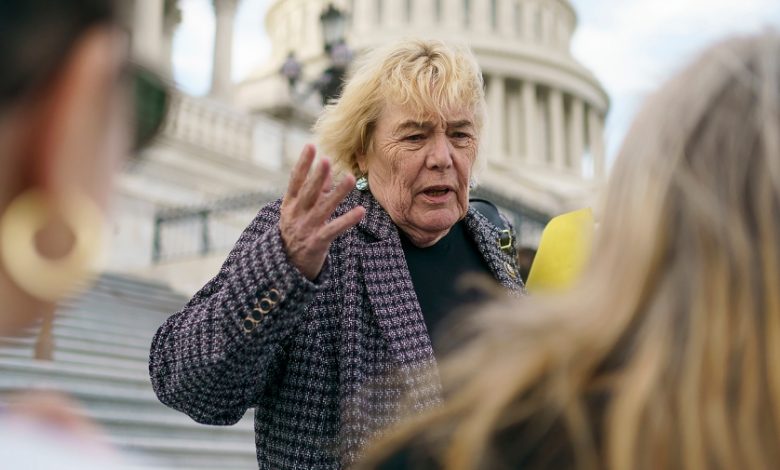California Democrat seeks answers from Capitol Police on home invasion attack on Paul Pelosi

California Democrat Zoe Lofgren is pressing for clarification from the federal government. There have been requests for increased security for members of Congress in the wake of the home invasion attack on Paul Pelosi on Friday.
The Capitol Police are under the jurisdiction of the House Administration Committee, and its chairwoman, Zoe Lofgren, wrote to the department’s chief, Thomas Manger, with a list of concerns after the attack on Speaker Nancy Pelosi’s (D-Calif.) residence on Friday.
The 82-year-old Paul Pelosi had a skull fracture and other critical injuries and was sent to the hospital.
“The incident and related circumstances, including the manner in which the Speaker and her family were targeted, raise significant questions about security protections for Members of Congress, particularly those in the presidential line of succession,” Lofgren wrote in the letter, which is dated on Tuesday.
The line of presidential succession was a particular focus for Lofgren. As Speaker of the House, Nancy Pelosi is second in line to the presidency, behind the vice president. Third in line is Senate President Pro Tempore Patrick Leahy (D-VT).
Lofgren probed Manger on whether or not the Capitol Police got feedback from or collaborated with the United States Secret Service while conducting an evaluation of the “physical security posture” for those in the line of succession. People have asked the Secret Service about “the level of physical protection needed to keep these people safe.”
After the attack on Paul Pelosi, there has been a lot of talk about protecting the family members of politicians in the line of succession. The chairperson of the Administration Committee asked about this.
“Has the USCP previously put forward a plan of action or request to the [sergeant-at-arms] and/or Capitol Police Board to extend coverage to the spouses and/or other family members of the congressional leaders in the presidential line of succession? If not, why not?” Lofgren asked.
David DePape, 42, is accused by authorities of breaking into the Pelosis’ San Francisco home early on the morning of October 28. At the time, Speaker Pelosi was in Washington, D.C.
The Justice Department’s affidavit says that DePape threatened to take the Speaker hostage and break her kneecaps.
DePape is said to have severely injured Paul Pelosi by hitting him over the head with a hammer later in the fight. He was taken to the hospital, where surgeons were able to successfully repair his fractured skull and treat the severe damage to his right arm and hands. According to the Speaker’s office, he will make a complete recovery.
Several state and federal charges have been brought against DePape, such as attempted murder and kidnapping.
In the wake of the incident, Capitol Police have been under close examination. There were cameras watching the Speaker’s house in San Francisco, but the agency said in a statement on Wednesday that they “were not actively monitored as they are when the Speaker is at the residence.”
Anonymous sources said on Tuesday that the Capitol Police cameras caught the break-in and attack, but the police didn’t find out about it until after the fact.
Due to “today’s political atmosphere,” Manger demanded “more resources to offer extra layers of physical protection for Members of Congress” on Tuesday.
Lofgren asked Manger whether Capitol Police had “developed a documented strategic plan” and “any standard operating procedures for officers to be assigned to planned regional or field offices,” among other things unrelated to the presidential line of succession.
She wanted to know whether the Capitol Police had used such strategies after the attack on Paul Pelosi.
In 2018, the Capitol Police said that they would open field offices in both San Francisco and Tampa.
In addition, Lofgren questioned Manger on whether or not the Capitol Police had turned down an invitation from the FBI to send officers to the San Francisco and Tampa field offices to serve as task force officers with the FBI’s Joint Terrorism Task Forces. She wanted to find out if the claim was true and if the agency would “rethink that offer.”



